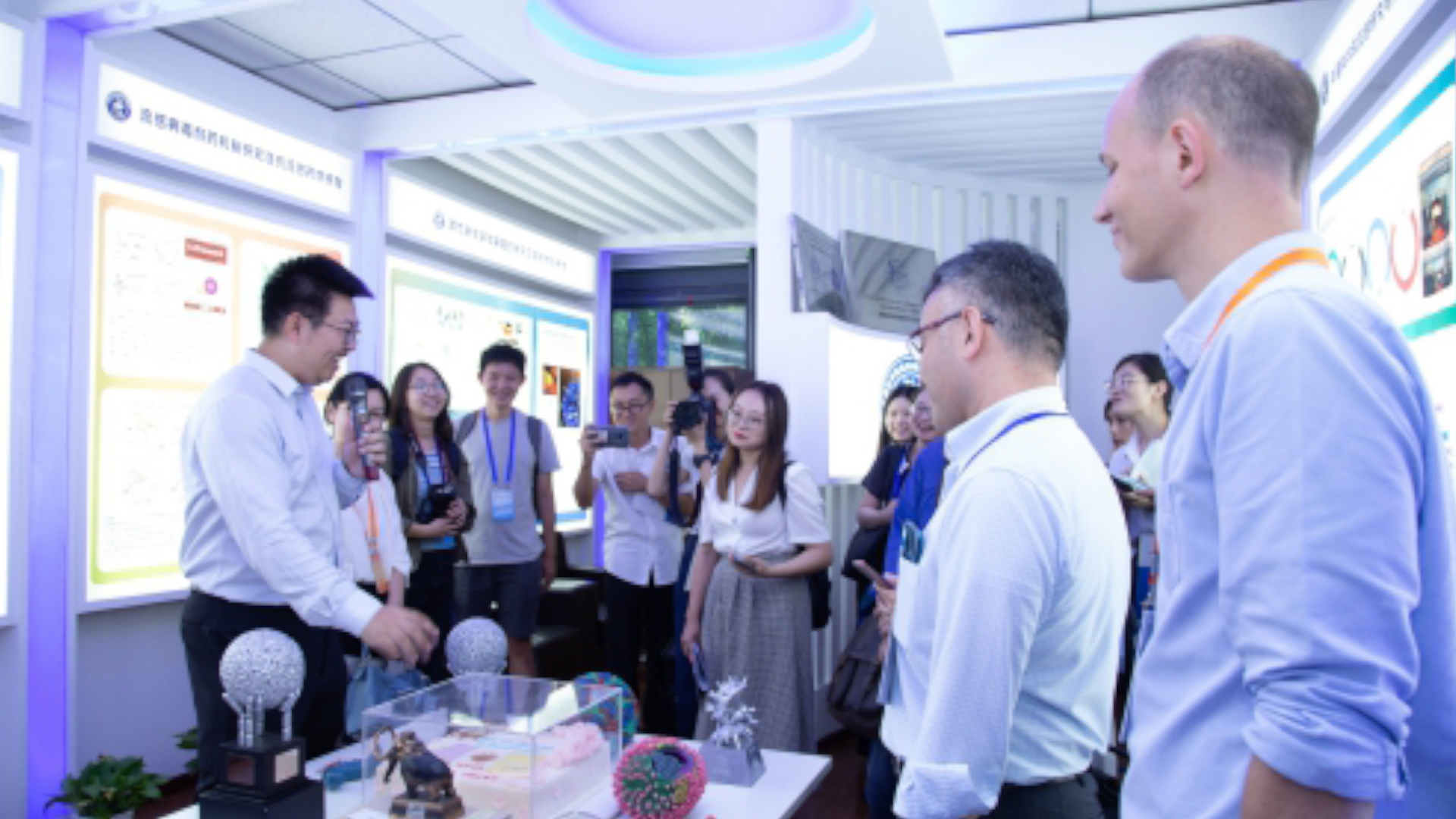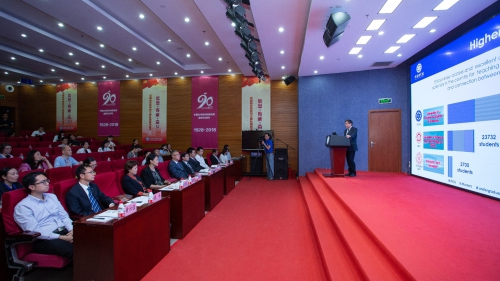

The Chinese Academy of Sciences (CAS) is considered one of the world's top research institutes. It produces a high volume of studies each year, published in a variety of peer-reviewed scientific journals.
To mark its 70th anniversary, CAS has a number of activities in store including hosting a tour for members of the international press.
The academy was founded the same year as the People's Republic of China. Over the past seven decades, it has brought together top talents from around the country, making numerous contributions to the nation's advancement in science and technology.
The CAS has made strides in various fields of research including the cultivation of synthetic crystalline bovine insulin and the cloning of monkeys via somatic cell transfers. It has also championed innovations in fields like energy, medicine, and agriculture.
"We have established a relatively complete discipline system for natural sciences, physics, chemistry, material science, and other disciplines, and some of those fields have become, or are becoming, world class," Deputy Secretary of the CPC Committee of CAS Hou Jianguo said.
Stem cell research is a field of study that brings the most pride to the academy. Dr. Zhou Qi and his team have been studying meiosis in reproduction and development. This has helped lay down a theoretical foundation for in vitro differentiation of human germ cells and provided new ideas for addressing infertility issues. The research team also launched the Beijing Stem Cell Bank to promote the clinical applications of stem cells. It also published the first group standard on stem cells in China.
"It is the happiest thing as a scientist to see the progress of scientific research. I see more and more common ideas and consensus in my own field. This is a wonderful benefit to being the head of the International Stem Cells Forum," said Zhou Qi, a professor and director of Institute of Zoology at CAS.
Another important focus for the academy is raising people's awareness of influenza. Microbiology researcher Shi Yi focuses on new and previously undiscovered viruses. In 2013, he made a breakthrough in the study of inter-species transmission of the H7N9 avian influenza virus. The results were published in the world's leading scientific journal "Nature."

Media reporters and researchers at the event site. /CGTN photo
"The live poultry trade is an important factor in avian influenza outbreaks, and my mentor Gao Fu has written editorials emphasizing the link between flu outbreaks and the live poultry trade, as well as calling on the Chinese government to shut down the live poultry trade in spring and autumn, when the flu virus is at its peak," said Shi Yi, deputy director of CAS key laboratory of Pathogenic Microbiology and Immunology.
From dealing with everyday illnesses to the diseases that could possibly arise in the future, the role and development of stem cell research and other areas of biotechnology will still be surrounded by controversy. Yet researchers at the Chinese Academy of Sciences say they are well poised to remain at the cutting edge of those debates for a long time.

Copyright © 2018 CGTN. Beijing ICP prepared NO.16065310-3
Copyright © 2018 CGTN. Beijing ICP prepared NO.16065310-3